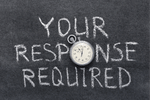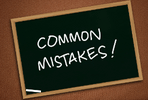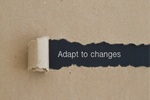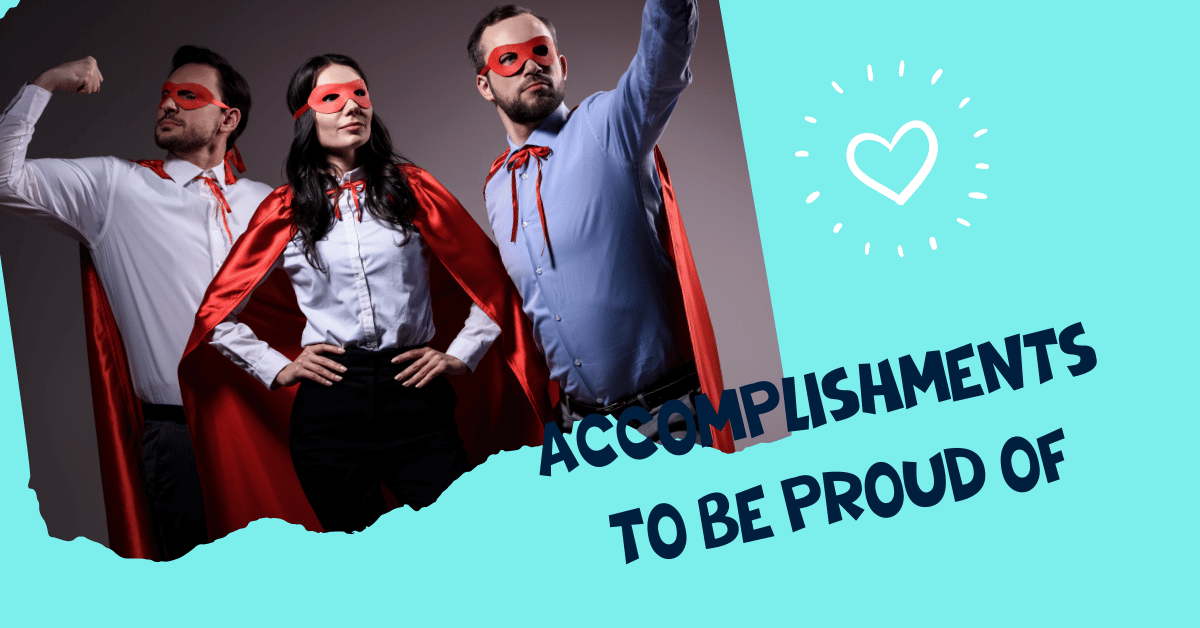You’re in the hot seat. The interviewer leans forward and asks one of the most common behavioral interview questions, “What accomplishment are you most proud of?” And you just panic and don’t know what to answer. Don’t worry, we’ve got you covered. This guide will transform that moment of panic into your time to shine.
- Why Interviewers Ask Behavioral Interview Questions
- Preparing Your Answer
- Choosing Your Greatest Accomplishment
- Structuring Your Response
- Tips for Answering Effectively
- Common Mistakes to Avoid
- Cultural Considerations
- Handling Follow-Up Questions: Anticipating Deeper Inquiries
- Practice Techniques
- Sample Answers Across Various Fields
- Adapting Your Answer for Different Career Stages
- Conclusion: Turning Your Proudest Moment into Your Next Opportunity
- Frequently Asked Questions
Why Interviewers Ask Behavioral Interview Questions
Let’s pull back the curtain on what’s really happening when you hear this interview question:
They’re not just making small talk – this is your chance to showcase your best self.
Interviewers use this to gauge your values, work ethic, and potential cultural fit.
It’s an opportunity to demonstrate how you can add value to their organization.
Remember, they’re looking for someone who can solve their problems and contribute to their success. Your answer is your audition for that role.
They want to see the fire in your eyes.
- Are you passionate about your work?
- Can you deliver results?
- Do you align with their company culture?
Your answer is a window into all of this.

Preparing Your Answer
Reflecting on Your Career
Take a step back and look at your journey. What moments made you punch the air in triumph? These are the gems you’re looking for. Consider:
- Major projects you’ve completed
- Challenges you’ve overcome
- Innovations you’ve introduced
- Recognition or awards you’ve received
- Times when you’ve exceeded expectations
Reflect on your previous job to identify moments where you made significant contributions or achieved notable successes.
Don’t limit yourself to just work experiences. Sometimes, personal achievements can also demonstrate valuable skills and qualities.
Identifying Relevant Accomplishments
Not all wins are created equal. You want to pick an accomplishment that’s:
- Relevant to the job you’re gunning for, focusing on a professional accomplishment that showcases your skills
- Recent enough to be meaningful
- Impressive enough to make them raise an eyebrow (in a good way)
Consider creating a “brag sheet” of your top 5-10 accomplishments. Update it regularly, and you’ll always have ammunition ready for interviews.
Gathering Evidence and Examples
Don’t just tell them—show them. Here’s what you need to collect:
- Specific numbers and data that quantify your achievement
- Testimonials or feedback from colleagues, clients, or supervisors
- Tangible results or outcomes of your accomplishment
- Details about the process you used to achieve your goal
The more concrete your example, the more it’ll stick in the interviewer’s mind.

Choosing Your Greatest Accomplishment
Aligning with the Job Requirements
Your proudest moment should be like a key that fits perfectly into the lock of the job description. Here’s how to make that happen:
- Analyze the job posting for key skills and qualities they’re seeking
- Choose an accomplishment that demonstrates these specific attributes
- Draw clear parallels between your past success and potential future contributions
Tailoring your answer to meet the expectations of the hiring manager can significantly increase your chances of making a positive impression.
For example, if the role requires strong leadership skills, focus on an achievement where you successfully led a team or project.
Demonstrating Key Skills
What skills did you flex in your shining moment? Consider how your accomplishment showcases:
- Leadership and team management
- Problem-solving and critical thinking
- Innovation and creativity
- Communication and interpersonal skills
- Technical expertise relevant to the role
Make sure these align with what they’re looking for in the job description.

Structuring Your Response
In order to structure your response and answer “what accomplishment are you most proud of” there are a few simple rules that you can follow in order to show that you really have something to be proud of and that you are the perfect fit for the company.
Let’s go through each of them in turn before we actually get to some amazing examples:
The STAR Method
This isn’t just another acronym—it’s your secret weapon for answering any behavioral job interview question. Here’s how it breaks down:
- Situation: Set the scene. What was the challenge or opportunity you faced?
- Task: What was your role? What needed to be done?
- Action: What steps did you take to address the situation?
- Result: What was the outcome? How did it impact the company or organization?
Using STAR ensures you cover all the crucial elements of your story in a logical, easy-to-follow manner.
Check out the lowdown here for a more detailed analysis.>>
Crafting a Compelling Narrative
You’re not just reciting facts—you’re telling a story. Here’s how to make it engaging:
- Start with a hook that grabs their attention
- Build tension by describing the challenges you faced
- Show your problem-solving process and decision-making skills
- End with a bang by highlighting the impressive results
Make them lean in and want to know more.
Quantifying Your Achievements
Numbers talk. If you increased sales by 50% or saved the company $100,000, that’s the kind of concrete info that sticks in an interviewer’s mind. Always try to include:
- Percentages to show improvement
- Dollar amounts to demonstrate financial impact
- Time frames to illustrate efficiency
- Comparisons to industry standards or previous performance
These concrete figures make your achievement tangible and memorable.

Tips for Answering Effectively
Here are the four biggest tips to use when preparing an answer to show what you are most proud of:
Being Concise and Specific
Get to the point. You don’t need to give a play-by-play of every detail. Stick to the most important details.
Use clear, action-oriented language.
Avoid industry jargon unless you’re sure the interviewer will understand it
Showing Passion and Authenticity
Let your enthusiasm shine through. If you’re genuinely proud of your accomplishment, it’ll show in your voice and body language. Tips for conveying authenticity:
- Speak from the heart about why this accomplishment matters to you
- Use expressive language to convey your emotions
- Let your facial expressions and tone of voice reflect your pride
- Be honest about the challenges you faced and how you overcame them
Discussing how your accomplishments have contributed to your personal growth can also make your answer more compelling.
Your genuine pride in your accomplishment should come through naturally.
Highlighting Individual Contributions
Even if it was a team effort, focus on your specific role. What did you bring to the table that made a difference?
- Clearly state your personal responsibilities
- Explain your unique contributions to the project
- Describe how your actions influenced the outcome
- Give credit to team members where appropriate, but keep the focus on your role
Show them you’re a team player who can also take initiative and drive results.
Explaining Future Value
Connect the dots for them. How will this past success translate into future wins for the company? Be sure to:
- Explain how your experience prepares you for the challenges of the new role
- Discuss how you’d apply the lessons learned to future projects
- Highlight your potential for growth and development within their organization
- Show enthusiasm for applying your skills to their specific needs
Make it clear that your past accomplishments are just the beginning of what you can achieve for them.

Common Mistakes to Avoid
On the other hand, here is pretty much the opposite of what we had in the tips. The bottom line is, follow the tips and you won’t go wrong.
Being Too Vague or General
“I worked hard and achieved success” isn’t going to cut it. Don’t use generic phrases without specific examples. For instance, simply stating that you improved efficiency is too vague; instead, mention how you addressed a specific challenge, such as difficulty locating specific files, to demonstrate your impact.
Moreover, if you don’t provide context for your accomplishment then they won’t know what you are talking about.
Overemphasizing Team Efforts
Teamwork is great, but this question is about you. Don’t give more credit to someone else. Don’t lie but at the same you must keep the focus on yourself and not on anyone else.
Choosing Irrelevant Accomplishments
That time you won a hot dog eating contest? Probably not relevant (unless you’re applying to be a competitive eater).
Don’t focus on something that may be work related but doesn’t have anything to do with the job you are applying for. And don’t focus on the skills that you may have but aren’t relevant to this job.

Cultural Considerations
Understanding Cultural Differences in Achievements
What’s impressive in one culture might be seen differently in another. Consider these factors:
- In some cultures, individual accomplishments are less valued than team achievements
- Certain cultures may place more emphasis on academic achievements over work experience
- Some regions may value long-term commitment to a company over diverse experiences
Do your homework on the company’s cultural background and values.
Adapting Your Answer for Global Companies
If you’re interviewing for an international role, consider framing your accomplishment in a way that resonates globally:
- Focus on universal values like innovation, efficiency, or customer satisfaction
- Highlight any cross-cultural aspects of your achievement
- Demonstrate awareness of global market trends or challenges
- Show how your accomplishment had a wider impact beyond your immediate environment
This approach shows your potential for success in a global context.

Handling Follow-Up Questions: Anticipating Deeper Inquiries
Be ready for them to dig deeper. Common follow-up questions include:
- “What was the biggest challenge you faced during this project?”
- “How did you measure the success of this accomplishment?”
- “What would you do differently if you could do it again?”
- “How did this accomplishment change you as a professional?”
- “Can you give an example of how you’ve applied what you learned to other situations?”
Having thoughtful answers to these questions shows depth and reflectiveness.
Preparing Additional Details
Have a mental library of supporting details ready. This might include:
- Specific anecdotes that illustrate key moments in the process
- Names and roles of key team members or stakeholders
- Data or metrics that further support your success
- Lessons learned or insights gained from the experience
- Examples of how you’ve applied these lessons to subsequent projects
The more prepared you are, the more confident you’ll sound. Write these down and have them on a little card so that you can have recall of them whenever you are getting ready for the interview.
Even if you are already in the waiting room, these little cards can be a lifesaver for you as they serve to refresh your memory and ensure you are fully ready for the interview.

Practice Techniques
Check out these three simple techniques so you can really show off your best side when you come to your interview.
Writing and Revising Sample Answers
Put pen to paper (or fingers to keyboard). Here’s how to craft your response:
- Write out your answer using the STAR method
- Review and edit for clarity and conciseness
- Ensure you’ve included quantifiable results
- Check that your answer aligns with the job requirements
- Revise until you have a compelling, concise story
Read it aloud. Does it flow naturally? Revise until it feels smooth and authentic.
Rehearsing Out Loud
Practice makes perfect:
- Recite your answer in front of a mirror to check your body language
- Record yourself and listen back—you’ll catch any awkward phrasing or filler words
- Time yourself to ensure you’re hitting the 1-2 minute sweet spot
- Practice with different emphases to suit various job requirements
The goal is to sound natural and confident, not rehearsed.
Getting Feedback from Others
Fresh perspectives can be invaluable:
- Ask a trusted friend or mentor to listen to your answer
- Request specific feedback on content, delivery, and relevance
- Consider conducting a mock interview for more realistic practice
- Be open to constructive criticism and willing to make adjustments
Remember, what sounds great to you might come across differently to others.
Using Skillful Talk will get you ahead of the curve. When you answer the questions you are going to be tracked every step of the way. Then your answer is benchmarked against the top performers. You are given a detailed feedback and summary of your answer to work out where you have done well and where you need to improve.
By using our system you will improve your performance and get the confidence you need to really excel in your interview.

Sample Answers Across Various Fields
Technology: Software Development Achievement
“I’m most proud of leading the development of our company’s first mobile app. We were losing market share to more tech-savvy competitors, and I proposed creating an app to re-engage our customers. I assembled a team of five developers, set aggressive but achievable milestones, and launched the app in just four months—two weeks ahead of schedule.
The result? We saw a 30% increase in customer engagement and a 15% boost in sales within the first quarter. This project not only showcased my technical skills but also my ability to lead a team and deliver results that directly impacted our bottom line.”
Healthcare: Patient Care Improvement
“My proudest accomplishment was introducing a bedside handoff process in our medical-surgical unit. Patients were often confused about their care plans, and there were occasional communication gaps between shifts. I suggested we start conducting our nurse-to-nurse shift reports at the patient’s bedside, involving them in the conversation.
I created a simple checklist to ensure we covered all important points and trained my fellow nurses on the new process. Within a month, we saw positive results. Patients reported feeling more informed and involved in their care. We also noticed fewer medication errors and improved continuity of care between shifts.
It wasn’t a massive, hospital-wide change, but it made a real difference to our patients and our team. This experience showed me that even small improvements can have a significant impact on patient care and satisfaction.”
Finance: Risk Management Success
“I’m most proud of developing a new risk assessment model that saved our firm $2 million in potential losses. I noticed our existing model wasn’t accounting for certain market volatilities, so I spent three months analyzing data and creating a more comprehensive algorithm.
After presenting my findings to the board and getting approval, we implemented the new model. In the first year alone, it flagged several high-risk investments we would have otherwise missed. This showcased my analytical skills, attention to detail, and ability to translate complex data into actionable insights.”
Education: Student Performance Enhancement
“My greatest achievement was designing and implementing a peer tutoring program at my previous school. Test scores were below the district average, and resources for individual attention were limited. I developed a system where high-performing students in upper grades could earn community service hours by tutoring struggling students.
Over one academic year, we saw a 25% improvement in overall test scores and a 50% reduction in failing grades. This initiative demonstrated my ability to think creatively, organize resources effectively, and positively impact student outcomes.”
Marketing: Successful Campaign Launch
“I’m particularly proud of spearheading a rebranding campaign for our main product line. Sales had been stagnant for two years, and we needed a fresh approach. I conducted extensive market research, collaborated with our design team, and crafted a new messaging strategy.
The campaign launched across digital and traditional media channels, resulting in a 40% increase in brand recognition and a 25% boost in sales within six months. This project showcased my strategic thinking, creativity, and ability to execute a large-scale marketing initiative with measurable results.”
Non-Profit: Fundraising Milestone
“My proudest moment was organizing a virtual fundraising gala during the height of the pandemic. Our traditional in-person event was canceled, potentially costing us $50,0000 in crucial funding. I pivoted quickly, researching virtual platforms, coordinating with speakers and entertainers, and training our team on the new format.
Despite the challenges, we not only met but exceeded our fundraising goal, raising $65,0000—30% more than the previous year. This achievement demonstrated my adaptability, problem-solving skills, and ability to rally a team around a common goal, even in difficult circumstances.”
Manufacturing: Process Optimization
“I’m most proud of leading a lean manufacturing initiative that increased our production efficiency by 35%. I noticed significant waste in our production line and proposed a comprehensive review of our processes. After getting buy-in from management, I formed a cross-functional team to analyze each step of our manufacturing process.
We identified bottlenecks, streamlined workflows, and implemented new quality control measures. The result was a 35% increase in output without sacrificing quality, leading to $1.2 million in annual savings. This project showcased my analytical skills, ability to lead change, and commitment to continuous improvement.”

Adapting Your Answer for Different Career Stages
Entry-Level Positions
Just starting out? No worries. Focus on accomplishments from internships, academic projects, or volunteer work. For example:
“During my senior year, I led a team project to develop a mobile app for campus event planning. We conducted user research, designed the interface, and developed the app within a tight three-month deadline. The app was adopted by the student council and led to a 50% increase in event attendance. This project showcased my ability to manage a team, meet deadlines, and deliver a product that solved a real problem.”
Key points for entry-level candidates:
- Show your potential and eagerness to learn
- Highlight relevant skills from academic or volunteer experiences
- Demonstrate how you’ve taken initiative and shown leadership
- Focus on your ability to learn quickly and adapt to new environments
Mid-Career Transitions
Switching fields? Highlight transferable skills and how your past achievements can apply to this new role. For instance:
“In my previous role in finance, I led a cross-functional team to implement a new customer relationship management system. While the technical details may differ, the project management skills I developed are directly applicable to this marketing role.
I coordinated between IT, sales, and customer service departments, managed a $500,000 budget, and delivered the project on time and under budget. The new system increased customer retention by 25% and sales efficiency by 30%. This experience demonstrates my ability to lead complex projects, work across departments, and drive measurable results – skills that I’m excited to bring to your marketing team.”
Focus on:
- Demonstrating adaptability and quick learning
- Showing how your diverse experience brings a fresh perspective
- Highlighting leadership and project management skills
- Emphasizing results and impact, regardless of the specific field
Senior Management Roles
At this level, they’re looking for strategic thinking and leadership. Your accomplishment should reflect your ability to drive organizational change and deliver high-level results. For example:
“My proudest accomplishment was leading our company’s expansion into the Asian market. This was a strategic initiative that had been discussed for years but never executed due to perceived risks. I developed a comprehensive market entry strategy, secured board approval for a $10 million investment, and personally relocated to Singapore to oversee the launch.
Within two years, we had established a strong presence in three key markets, generating $30 million in new annual revenue and increasing our global market share by 15%. This initiative not only drove significant growth but also positioned us as a truly global player in our industry. It demonstrated my ability to develop and execute long-term strategic plans, navigate complex international business environments, and build high-performing teams across cultural boundaries.”
Key elements for senior roles:
- Focus on large-scale, strategic initiatives
- Highlight your role in driving organizational change
- Demonstrate your ability to think globally and long-term
- Showcase your leadership in high-stakes, complex situations
Conclusion: Turning Your Proudest Moment into Your Next Opportunity
Remember, the “What accomplishment are you most proud of?” question is your chance to leave a lasting impression.
By following these strategies, you’ll be well-equipped to:
- Choose a relevant, impactful accomplishment
- Structure your response clearly and compellingly using the STAR method
- Tailor your answer to the specific role and company
- Demonstrate your value as a potential employee
Your answer to this question can set you apart from other candidates and give the interviewer a clear picture of the value you’ll bring to their organization.
It’s not just about what you’ve done – it’s about what you’re capable of doing for them in the future.
Remember, your response to this question is your opportunity to showcase your unique value. By preparing thoughtfully and presenting your accomplishment confidently, you’ll be well on your way to making a lasting impression in your interview.
Final thoughts: Remember, your response to this question is your opportunity to showcase your unique value. By preparing thoughtfully and presenting your accomplishment confidently, you’ll be well on your way to making a lasting impression in your interview.



